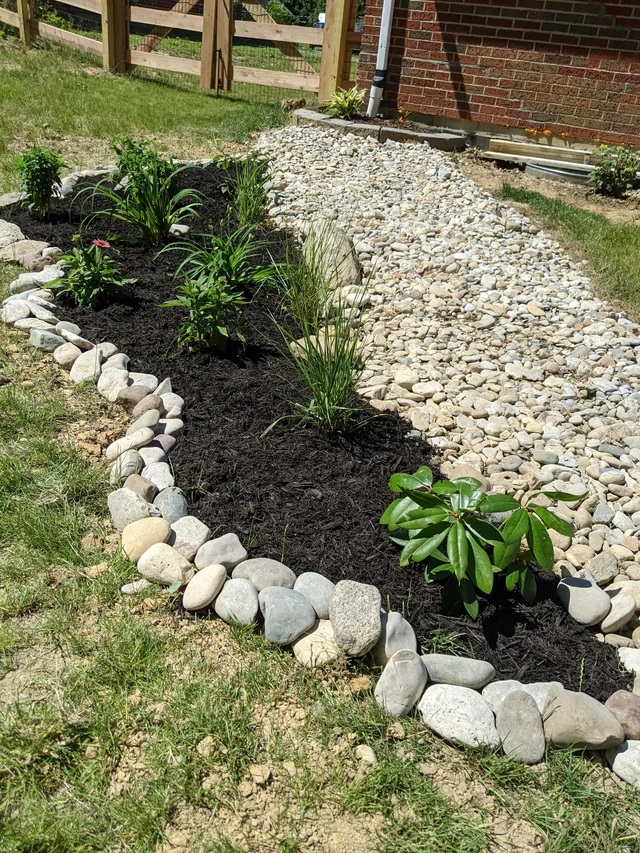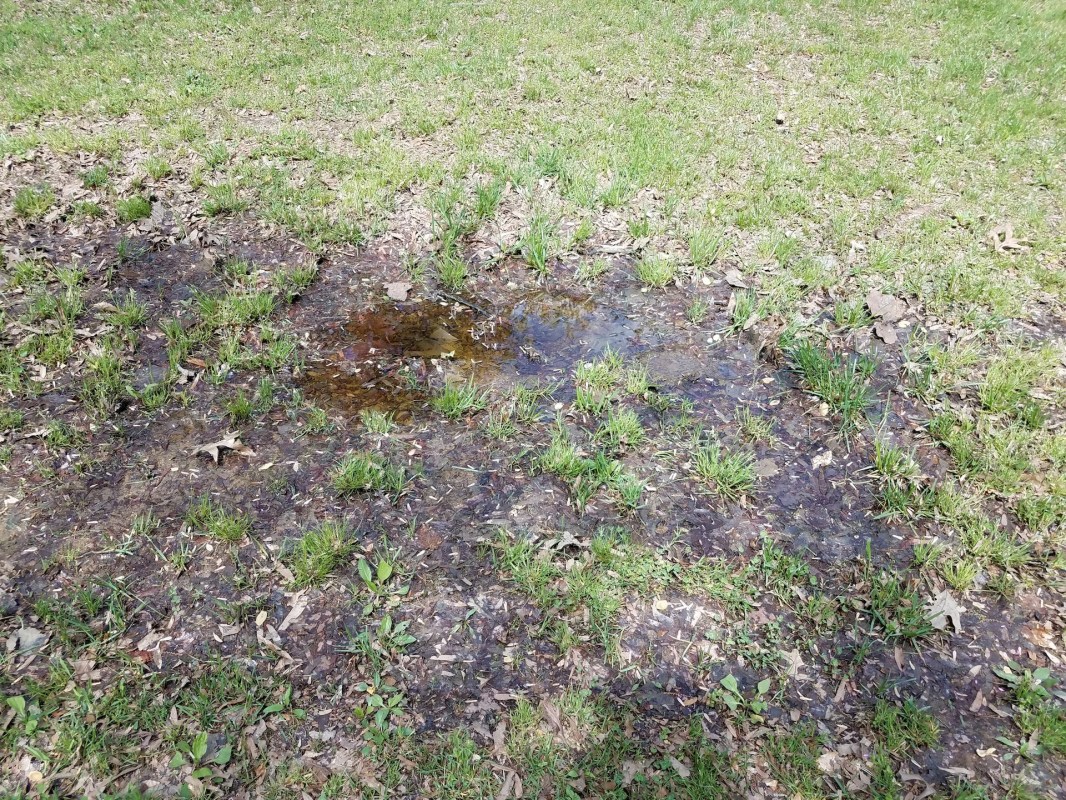One creative gardener turned their yard's weakness into a strength by embracing the muddy area near their drain pipe.
"Created a rain garden for my perpetually muddy spot in the yard!" they posted about the project in the r/gardening subreddit.

A rain garden is a special type of garden bed placed in a low-lying or often-flooded area of the yard that tends to be wetter than the rest. You can also create an intentional slope to make the perfect rain garden. Then, you plant deep-rooted, water-loving plants there, including native species, to take advantage of the extra moisture pooling in the area and help it soak into the ground. A rain garden helps prevent flooding, protecting the rest of your yard and even your house's foundation — and the plants love it!
This homeowner shared a photo of their finished project. At the base of the downspout from their roof gutters, they have a bed of light gray river rocks to keep the area from getting too muddy or eroded. Next to it runs a long, organically shaped garden bed outlined in more rocks, with around 10 freshly planted shrubs and bunch grasses.
"I did some research before planting for what would take a lot of water well," the original poster commented. "We have rhododendron, switch grass, purple coneflower, bee balm, and day lilies."
Creative alternatives like these can completely turn your yard around when grass isn't doing well or is just too difficult and expensive to maintain. People across America are starting to embrace rain gardens, native plants, clover lawns, xeriscaping, and more because they take much less water and maintenance than grass and even provide food for the pollinators we rely on in our farms and gardens.
Plus, they're just pretty. Commenters loved this Redditor's inventiveness. "Brilliant!" said one user.
"I would have never thought to do this, but it's so smart! Looks great too!" said another Redditor.
"Great way to work with your yard instead of against it," said a third commenter. "There's a plant that will thrive for every spot, you just have to find the right ones."
Join our free newsletter for easy tips to save more, waste less, and help yourself while helping the planet.









